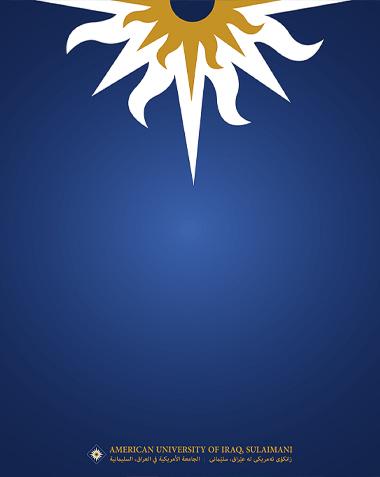

Dr. Nida Kamal
Adjunct FacultyDepartment of Business Administration
- PhD Management Sciences, Bahria University Islamabad, Pakistan
- Email: [email protected]
- Office: B-F1-07
Profile
Dr. Kamal holds a PhD in Management with over 10 years of teaching, research, and training experience. She has made extensive contributions to quality assurance in higher education. With peer-reviewed research publications and indigenous case studies, she brings both academic rigor and practical insights to her work. Her teaching methodology centers on an experiential learning approach based on reflection and application, enabling students to gain knowledge, skills, and values through simulated experiences while also developing critical thinking, problem-solving, teamwork, and adaptability inside and outside the classroom.
She has received the Distinguished Faculty award at her prior higher education institution. Her areas of interest include leadership, knowledge management, human resource management, and organizational behavior.
Publications
- Knowledge entrepreneurship in higher education institutions: a perspective of knowledge sharing and entrepreneurial leadership in Pakistani HEIs. Foresight (2024). 26(6), 1001-1029.
- Impediments to physicians’ workplace contentment and wellness: A multifaceted qualitative inquiry. Health Economics and Management Review (2024). 5(3), 20-39.
- The role of Satisfaction predictors in determining Revisit Intentions of patients in Private Health Institutions of Pakistan. Foundation University Journal of Business & Economics (2024). 9(1).
- Impact of Inclusive Leadership on Project Success through Climate for Innovation: The Moderating Role of Knowledge Sharing (2023). International Journal of Knowledge and Learning, 16 (2), 201-220.
- Knowledge Hiding Through the Lens of Abusive Supervision, Moral Disengagement and Self-Efficacy. Pakistan Journal of Commerce and Social Sciences (2023). 17(4), 762-792
- How Supervisory Support for Career Development Impacts Self-Efficacy and Career Satisfaction? The Moderating Role of Task Proficiency (2022). Journal of Positive School Psychology, 6 (11), 912-934.
- Impact of Knowledge Practices on Innovation: The Role of Employees? Intention to Stay and Recognition (2022). NUST Business Review, 3 (2), 1-15.
- Interpersonal Process Effectiveness: An Empirical Analysis (2022). South Asian Journal of Management Sciences, 16(2), 1-15.
- Looks Like Looks Matter: Impact of Beauty Bias and Attractiveness Privilege at The Workplace (2022). Journal of Xidian University, 16(11), 83-90.
- Social Media Marketing Activities: A Tool for Creating Brand Awareness (2022). VFAST Transactions on Education and Social Sciences, 10 (2), 7-15.
- Organizational Justice-Organizational Cynicism Relationship: Moderating Role of Islamic Work Ethics (2021). Journal of Workplace Behaviour, 2 (1), 1-11.
- Turnover Intentions of Front-Line Employees; a Case of the Banking Sector (2021). VFAST Transactions on Education and Social Sciences, 9 (3), 90-99.
- How Does Narcissism Promote Knowledge Hiding? The Contingent Role of Anger and Caring Climate in Higher Education Institutes (2021). Journal of Managerial Sciences, 15 (4), 1-15.
- Linking Social Media Engagement with Customer Relationships and Brand Loyalty: A Consumer-based Perspective (2021). VFAST Transactions on Education and Social Sciences.
- Discovering the Mediating Role of Electronic-Word of Mouth between Consumers’ Attitude and Purchase behaviour (2021). City University Research Journal, 3 (11), 487-511.
- Antecedents of Supply Chain Effectiveness: An Empirical Analysis (2021). Journal International Review of Basic and Applied Sciences, 3 (9), 192-201
- Organizational Encouragement and Obstacles for Creativity: The Mediating Role of Creative Self-Efficacy and the Moderating Role of Job Autonomy (2020). International Journal of Innovation, Creativity and Change,14 (8), 505-526.
- The Competencies and Knowledge Entrepreneurship relationship in Higher Education Institutes: Examining the Moderating role of Organizational Climate (2020). Global Social Sciences Review, 1, 390-398.
- Road to Women Empowerment in Cambodia; A Leadership and Education approach. International Review of Management and Business Research (2020). Vol. 9 Issue.3,81-87.
- Entrepreneurial Intentions and Behaviours in Developing Economies: The Role of Personality Traits and Entrepreneurial Education. International Review of Social Sciences (2020). Vol. 8 Issue.7, 164-175.
- Knowledge Hiding and Creativity in Higher Education Institutes: Understanding the Contingent Role of Perceived Supervisory Support (2020).GSSR Vol. IV, No. IV, 341 – 349.
- Social Media Usage, Overload and Exhaustion: A Performance Perspective. International Review of Management and Marketing, (2020), 10(5), 19-26.
- Influence of Ethical Leadership on Health Care Climate of Innovation in Pakistan (2019). Pakistan Journal of Public Health, 8(4), 219-224.
- Engaging Employees through Ethical Leadership (2018). Global Social Sciences Review, 3(III), 296-285.
A social dominance perspective of abusive supervision (2018). Journal of Business and Tourism, Special Edition, 343-360. - Directive Leadership and Satisfaction: A Unique Relationship (2017). Advanced Science Letters, 23(1), 337-340.
- Leadership and creativity: does organizational culture matter (2014). Journal of Basic and Applied Scientific Research, 4(6), 50-56.
- Testing the weak-form efficiency of the stock market: Pakistan as an emerging economy (2013). Journal of Basic and Applied Scientific Research, 3(4), 136-142



